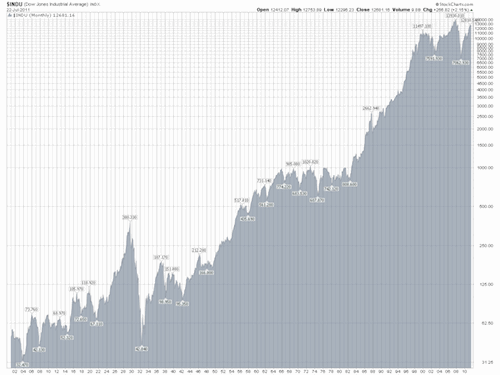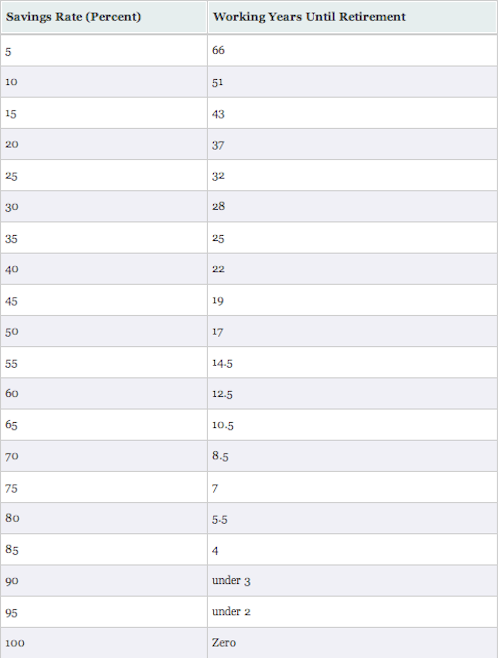One of the difficult things about financial planning, is that the timescale is all off.
Investment gains accumulate in a logarithmic fashion. There are small, imperceptible changes at first, and only over time do these changes accelerate.
By the time the change becomes perceptible, it’s pretty much impossible to double down or to make positive adjustments to our saving habits.
It’s really too bad, but it seems as though our sense of time is attuned to rapid changes in our immediate environment, as opposed to slow changes in our larger environment.
No doubt this sensitivity to the immediate was useful when we were trying to avoid becoming the prey of a sabertooth tiger. But let’s face it, these days many more of us fall prey to heart attacks, than to predators. And the slow relentless drumbeat of our over-eating and sedentary lifestyle trickles below the radar of our consciousness. So we keep on making stupid and destructive decisions.
Similarly it becomes very difficult to make smart financial decisions based on intuition.
When we are deciding whether or not to make a purchase, we are choosing between the immediate gratification of consumption, and the delayed (and often imperceptible) gratification of financial freedom.
When we look at the balances in our retirement accounts, it is very difficult to conceive of the growth that is coming down the pike.
It’s hard to believe that wealth will accumulate when you cannot see it accumulate.
Another problem is that the time at which are saving would make the most difference to our future, is when we are youngest. And the younger you are the more difficult it is to perceive of the effect of small changes over time.
So what can we do to combat our inadequately evolved consciousness?
I’m not really sure, but here are some ideas:
1. Look at this chart.
This chart makes perceptible the effect of small changes over time. For me first seeing this chart was a real “aha” moment.
Changing 5% of your spending (which may just mean forgoing your Starbucks latte every day, ) can yield you years more of financial independence.
2. Look at this chart:

This chart shows unstoppable rise of the stock market over time. All of those dips and squiggles that obsess us at the time they occur, are hardly perceptible in terms of the rise of equity over time.
Buy ,hold, and rebalance the whole market over time, and you will likely do very well.
3. Use math!
Do you have a weekly expense you’re deciding whether or not to continue paying? Multiply it by 752. That is how much the savings will be worth if invested with 7% returns over the next 10 years.
(So a Starbucks coffee at $2.50 a day is $17.50 a week or $14,912 in 10 years.)
4. Grow up.
I’m finding that as I get older, I become more aware The effect of small actions over time.
I’ve lived through cramming for organic chemistry tests as a college freshman, not sure I would ever get into med school. I’ve survived 110 hour work weeks in the ICU as an intern. I’ve been through times where I was so tired I didn’t know which way was up. And only now can I see that that all of these consuming experiences were crucial training for my life and my happiness that I am enjoying now.
In retrospect it is possible to see that whatever small accomplishments I have achieved, are the fruits of labors long since passed.
Somehow this gives me faith that the small adjustments I’m making now, will pay off big time in the future.
5. Perform an experiment.
Commit to doing something small each day for a set amount of time.
Maybe it’s practicing guitar, maybe it’s doing core strengthening exercises, maybe it’s reading a scientific journal.
It doesn’t really matter what it is, just do it every day, and mark a red X on your calendar each day you do it, and reassess where you are in 6 to 12 months.
Although you may not see improvement each day, you likely will when you do your reassessment. This may reinforce your faith in your ability to effect the future with small changes now.
7. You tell me.
What tricks do you have for making the imperceptibly small changes repeated over time perceptible?
Please leave your comments below.



2 Responses to “Bending Space Time”